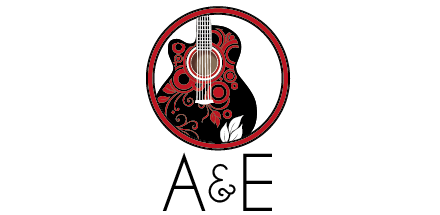West Ashley’s livability and traffic problems just got three steps closer to improving, or took two steps closer to disaster last week, depending on who you ask.
Charleston County Council defeated a measure to place a referendum for a 25-year, $2 billion local sales tax increase on the November General Election ballot that could have led to the completion of I-526.
And in City Council chambers, council-members voted to hand back the naming of a West Ashley revitalization committee to Mayor John Tecklenburg, and approved the continuation of dedicating a bike and pedestrian lane on the Thomas Legare Bridge onto the peninsula.
It is important to note that none of the moves are the final steps in the completion of any of the projects. In reverse order:
• The bike lane still has to be further vetted, voted, and funded by County Council.
• The revitalization committee has yet to meet, discuss, or offer recommendations.
• And the sales tax referendum has a small window to be reconsidered by County Council.
Due to timeline issues, County Councilman Vic Rawl said that if the referendum weren’t tackled this week, then the county would have to wait two years until the next General Election that features countywide races.
Supporters of the measure hold that a completed I-526 would increase connectivity throughout the city and reduce already-choked traffic in West Ashley; whereas opponents hold that more roads would create even more development and lead to a bigger traffic mess.
Rawl helped tighten that window last week when he voted against the resolution that would have placed the referendum on the ballot. But, he said, unlike others on County Council who voted for and against the measure for ideological reasons, he voted nay for legal ones.
Rawl said that the resolution would have had the referendum include troublesome language as to what the roughly $2 billon would go for — completion of I-526, creation of a high-speed bus line linking Summerville to the peninsula, green space, and other specific projects.
It was the specificity of the language that troubled Rawl, a former state judge. His point was that the referendum language on the ballot needed to be as “Plain Jane” as the similar half-cent optional sales tax increase that county voters passed more than a decade ago.
To name specific projects in the referendum would be tantamount to tying the hands of future County Councils, and that, according to state law, can’t be done.
Rawl, however, opened that same window a little at the end of last week’s County Council meeting, when he verbally moved to have the failed measure revisited.
Because the county elections commission needs to have the referendum in hand for a full week before their August 14 deadline, Rawl said the only chance County Council has to address solving what he called a “conundrum” would be Tuesday or Thursday of this week. And, he said that with Colleen Condon expected to be “out of pocket” all this week, it further complicated matters. “She’s a player,” he said.
City Councilman Bill Moody, who represents a wide swath of West Ashley, spoke at last week’s County Council meeting, imploring its members to move quickly on the referendum and to make sure that completing I-526 is the cornerstone of the measure.
Speaking Friday morning after the County meeting and hearing, Moody said he believed that if a separate referendum for completion were crafted, “60 to 70 percent of voters would approve it.”
West Ashley resident and DuWapp neighborhood’s activist Carmen Nash attended the meeting and noted that there is less “connectivity on the west side of the peninsula, compared to the robust infrastructure on the Mt. Pleasant side.
“Something needs to be done about that,” said Nash, likening the issue to the same paradigm where Sullivans Island Elementary was rebuilt by the county School Board for a handful of kids to attend, but is balking at a similar project for a largely-black Stono Park Elementary on this side of the peninsula.
The referendum, because it would complete I-526, also has some very powerful enemies, namely the S.C. Coastal Conservation League, which has for years battled against what it sees as an expensive non-solution that would only make matters worse.
The league is resolutely against the referendum, despite the inclusion of money for enhanced mass transit and enough money to protect at least 10,000 acres of land, according to its land use program director, Natalie Olson.
Olson argued that with the lack of state funding for the project, completion would not just be an environmental disaster for the county, but a fiscal boondoggle as well. She said the roughly $725 million price tag for completion “is so much money, that getting it wrong would be a disaster.”
Mayor Tecklenburg also appeared at the County Council hearing, offering up putting a toll on the new section of I-526 to help offset the considerable amount of money the project would cost.
City Councilman Moody is bracing for a disaster along the Legare Bridge, where a month-long bike lane test polarized West Ashley, as well as the rest of the Lowcountry.
Last week, City Council voted 7-6, with one member teleconferencing his “yea” vote, to approve recommending the county go forward with reserving the far right peninsular-bound lane on the Legare Bridge for bike and pedestrian use.
Peter Shahid, one of the other City Councilmen representing West Ashley, voted very much for the bike lane, saying it “was just the right thing to do.”
“I just believe that so many positive things will happen because of that bike lane,” Shahid, referencing all the vitality the bike and pedestrian lane on the Arthur Ravenel Jr. lane has brought to the area.
“And it’s not like its unfixable; if there is a boomerang effect and it fails, we can just change it back,” said Shahid.
Moody said he and other councilmembers are more comfortable with Tecklenburg being tasked with naming the revitalization committee, as long as they have the ability to approve or disapprove the mayor’s choices before the process truly begins.
(843) 766-WEST (9378)
publisher@westof.net













